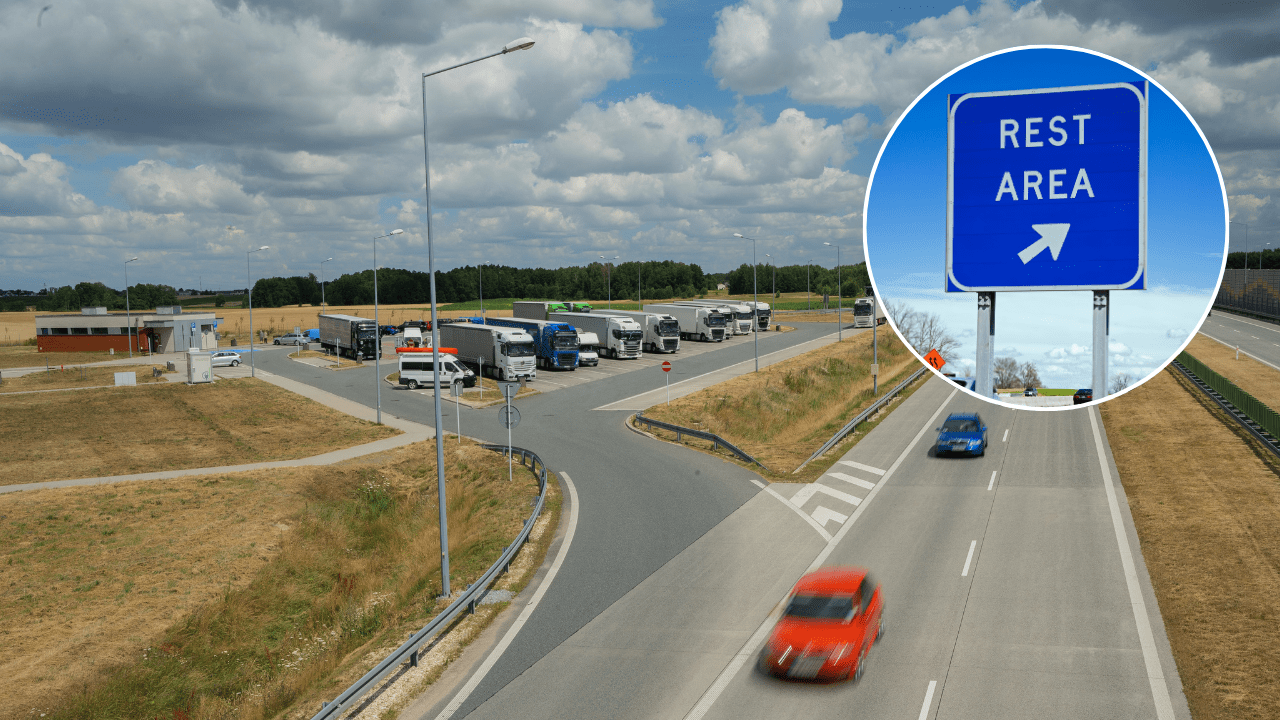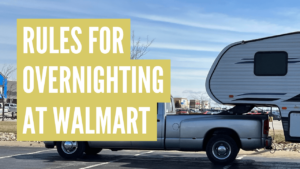Rest areas are meant for all travelers who need a break from the road. They provide a place to stop, rest, and reset.
But as RVers, using them comes with some unwritten expectations, especially when you’re sharing space with commercial truck drivers who rely on these stops to meet strict driving hour limits.
If you’re going to use a rest area, here’s how to do it with respect for the area rules and for those who rely on these stops.
1. Park in the Right Area for Your RV Type
Class B and Class C rigs should park with passenger vehicles. You can fit in a standard space, so use it. Class A motorhomes, fifth wheels, and large towables may need the truck section because of their size, but that doesn’t mean you can stay overnight there.
2. Truckers Come First
Truck drivers are required by law to stop after a set number of driving hours. Rest areas are often their only option. At many highway stops, there aren’t enough truck spots available. If you’re in the truck section and all spots are full, you should move on if you’re rested enough to do so safely. Try a Walmart, Cracker Barrel, etc. Here are what stores actually allow overnighting for RVers for some ideas.
3. Don’t Set Up Camp
Camping isn’t allowed at any rest areas. That means no awnings, chairs, grills, or turning the space into anything more than a place to rest. If you absolutely can’t access your bed or bathroom without a slide, extend it cautiously and only on the side that doesn’t block truck parking or traffic. Keep your footprint small and leave as soon as you’re rested enough to move on.
4. Know the State Rules
Each state handles overnight parking at rest areas differently. Some allow it with a time limit, others ban it completely. For example:
- Iowa allows parking for up to 24 hours.
- Texas allows up to 24 hours at designated safety stops, but tents and structures are not allowed.
- Colorado prohibits overnight parking entirely.
Rules can change, and enforcement isn’t always consistent. Check posted signs and look up current laws before relying on rest areas for sleep.
5. Short Stays Are Fine, Long Stays Get Tricky
If you’re just stopping for a nap or a meal break, that’s usually not a problem. But when it comes to overnighting, things vary by state, as mentioned above. If you’re unsure, look for posted signs.
6. Be Ready to Leave if Asked by Staff or Law Enforcement
Even in states that allow overnight RV parking, a highway patrol officer, rest area worker, or other official might ask you to move. Enforcement can vary by location or time of day. If someone with authority tells you to leave, don’t argue. Just move on to another spot. If a trucker or fellow traveler raises a concern, use your judgment. It may be a good idea to relocate if you’re in a truck-designated area and all the spots are full.
7. Don’t Push the Limits
Staying too long, setting up camp, or ignoring posted signs can lead to problems. This kind of behavior gets RVers banned from places that were once available. Arrive late, leave early, and don’t sprawl out like you’re at a campground.








I have traveled all over this land and used truck stops. always park way in the back and out of the way. most have a lot attendant that will assist you on the rules. Try to pick larger stops, ones with over 100 spaces, Use KOA journey’s… they are less money and geared for overnight parking. https://koa.com/koa-journey-campgrounds/
No overnight in Colorado? Tired drivers are a huge liability to safety on the road.
Free places to camp on BLM land is plentiful in Colorado. I stay there instead of the rest areas.
https://www.boondockersbible.com/learn/which-states-allow-overnight-parking-in-rest-areas/